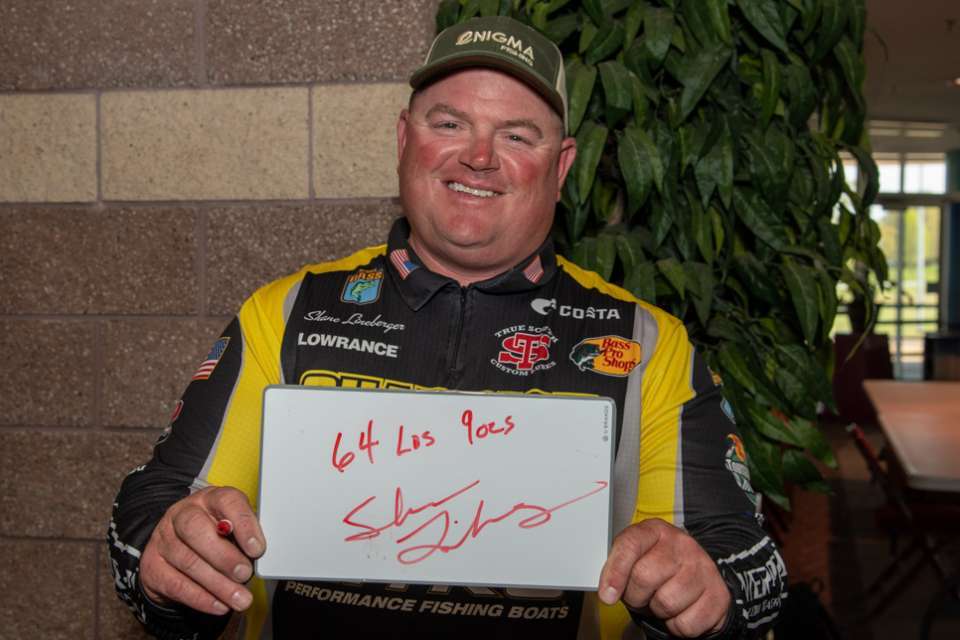
The 47-year old North Carolina pro has won his fair share of tournaments through a quarter century of bass fishing, but those arenât necessarily the events heâs kept in mind on his return trip to the Bassmaster Elite Series in 2019. Rather, Lineberger specifically has recalled two tournaments in 2017 that cost him his spot in the Elite Series.
He cut a check in six of nine tournaments in 2017, his sophomore season on the tour, but he also finished next to last on the St. Lawrence River in New York and dead last at Sam Rayburn Reservoir in Texas that year. Those disappointments made him doubt his future in the sport, right when it seemed destined to take off.
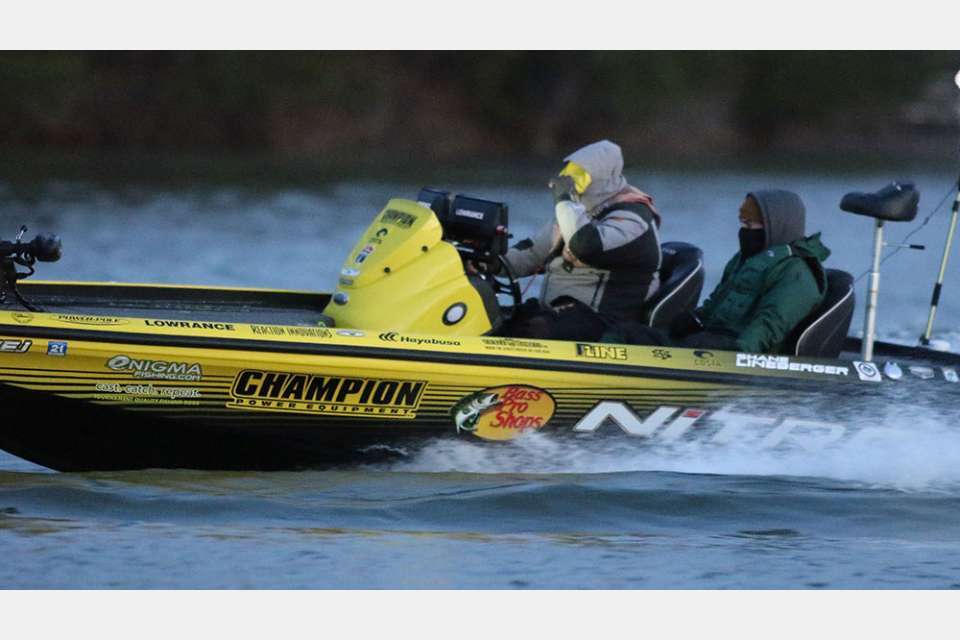
Bassmaster.com reporter Andrew Canulette caught up with Lineberger as the season continued to get interesting.
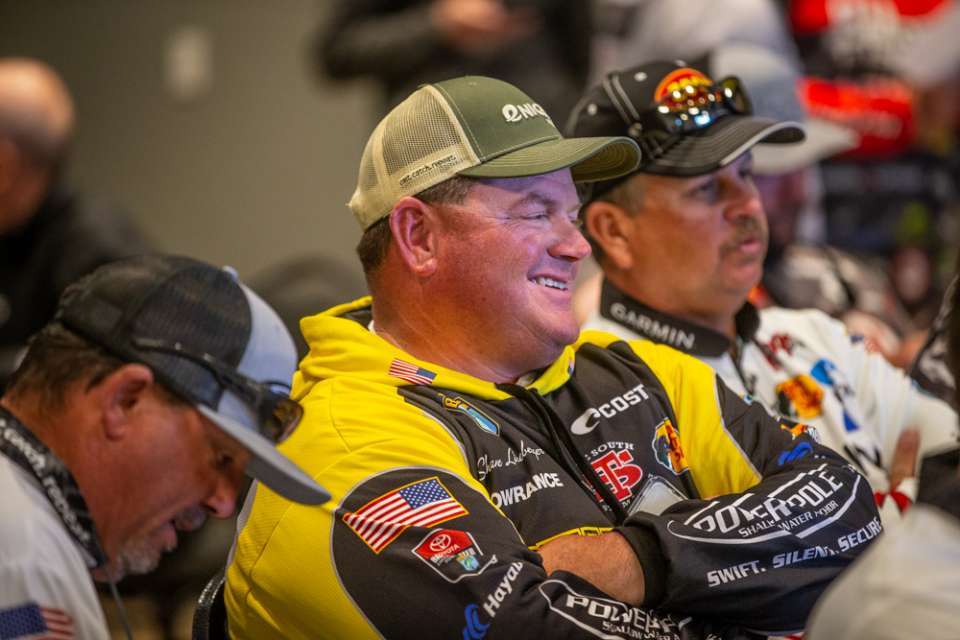
There definitely were some similarities. The big thing was the venue. My first elite tournament in 2016 was on the St. Johnâs River, and it was really neat to get back there. They used the same places. We went to the Shrinerâs Club, and they fed us again. It was kind of like a fresh start for me ⦠It really did make me comfortable that week because none of it was new to me. I got down there, and I knew my way around. I had been there before. It makes a huge difference to a fisherman to go someplace youâve been before. My first two years on the Elite Series, not one single time did we go to a place I had fished in my life. Itâs a big deal, and people donât realize it. For the guys that had been on the Elite Series forever, they had been to these places over and over and over again. When B.A.S.S. started the rule that you couldnât get any new information (about a tournament fishery), it really handicapped the new guys coming in. Back when you could get help, Iâm sure everyone did. New guys were handcuffed a bit. Not only are you competing against the best anglers in the world, but youâre competing against all that experience. I feel the playing field is more level now, and itâs one thing thatâs got me really excited about the 2019 Elite Series.
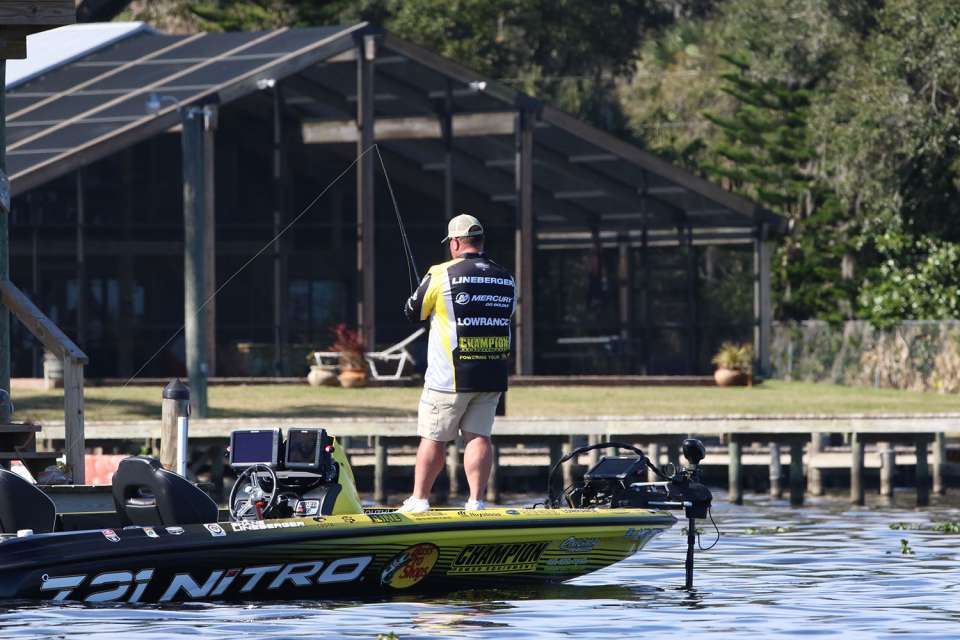
I went to the areas where it all went down in 2016 when (Rick) Clunn won and everybody was fishing the eel grass flats. But this time there was no eel grass and that put a totally different dynamic on the place. Traditionally, you might get out there and guys would be fishing that eel grass for bedding fish. With the grass gone, it played right into my wheelhouse. A lot of the fish were spawning on the docks, and I grew up doing some North Carolina dock fishing. So naturally, I went there and the first row I went down in practice, I got bit once, sometimes twice. It worked out OK for me at St. Johnâs. I had some bad luck with 20 pounds on the hook the first day, but I only weighed 13 1/2 pounds. A couple of fish came off. Clunn and I sort of hopscotched one another the entire practice and the entire tournament, but he figured out how to catch the big females bedding in the dollar grass. I never did. I was catching 3- to 5-pounders and thinking I was going to be pretty good. I was, but it wasnât the 7- to 10-pounders other anglers were catching.
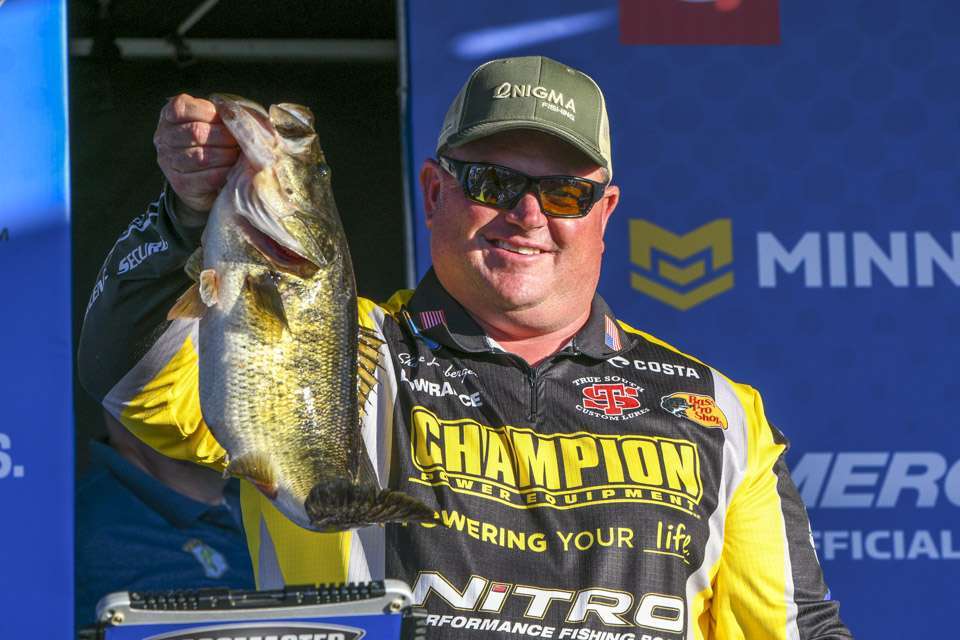
It really helped me build confidence. I made some good decisions at St. Johnâs⦠In practice and on the first day of the tournament, I was throwing a 6-inch worm on a spinning rod. Itâs what I thought I had to do to get bites. After those fish broke off on Day 1, I switched to a 7-foot, 6-inch flipping stick with 25-pound line, a big reel and I went to whaling on them. I finished up with a solid tournament and that momentum carried over to (Lake) Lanier where I had an even better tournament.
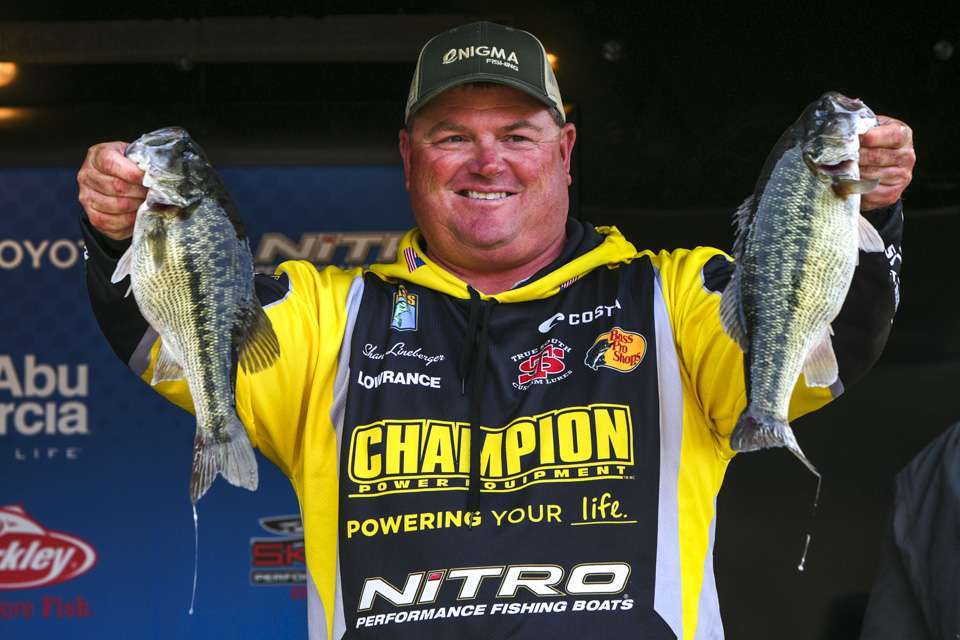
We were very fortunate to get some stable weather that week, and the fish didnât do anything crazy. I didnât really expect to win at Lanier, because I figured it would get won in about 30 or 35 feet of water, which it was. But thatâs not my thing. But if my first two years on the Elite Series taught me anything, itâs to fish your strengths. Before, I would try to do things in a tournament the way I thought it would be won, rather than doing what I do best. Iâve got enough experience now that when I go to a tournament, I try to find the bite that Iâm comfortable with. Youâre not going to win every tournament, and youâre not even going to be in position to win every tournament you fish. This is a marathon, not a sprint. We have nine tournaments throughout the year, and itâs a matter of survival. If the opportunity presents itself to win, thatâs one thing. Until then, I think you have to stay true to your strengths. It worked out.
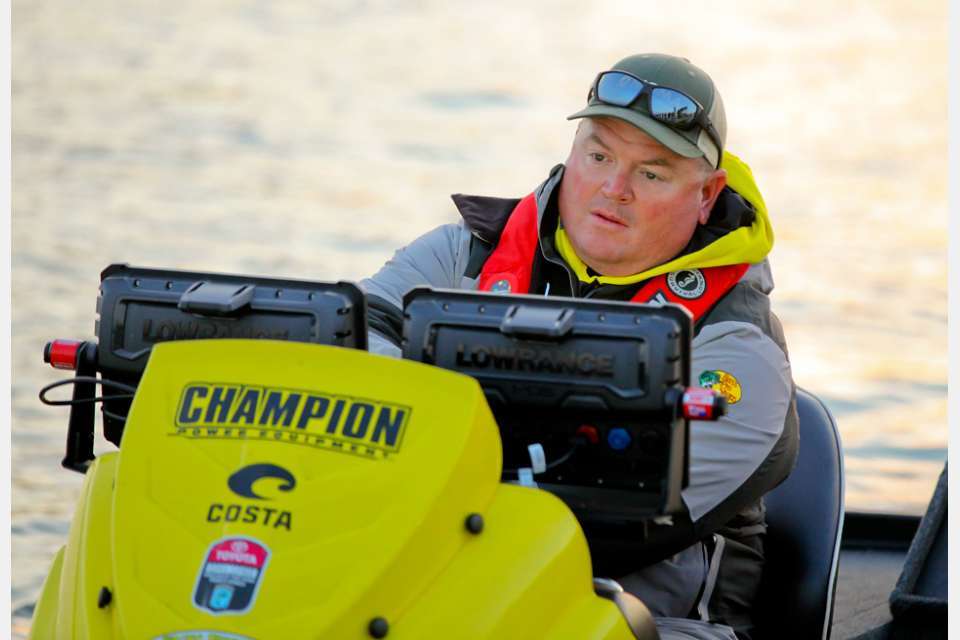
Iâve fished a whole lot at (Lake) Hartwell and that was the third Elite event of the year. Itâs not but about an hour and 45 minutes from my house. Iâve won quite a few tournaments there. As I expected there was some sight fishing going on, and I spent a little time doing that. But I had a few other things going on that arenât so well known. Unfortunately, it didn’t go as well as I had hoped, but it could have been worse.
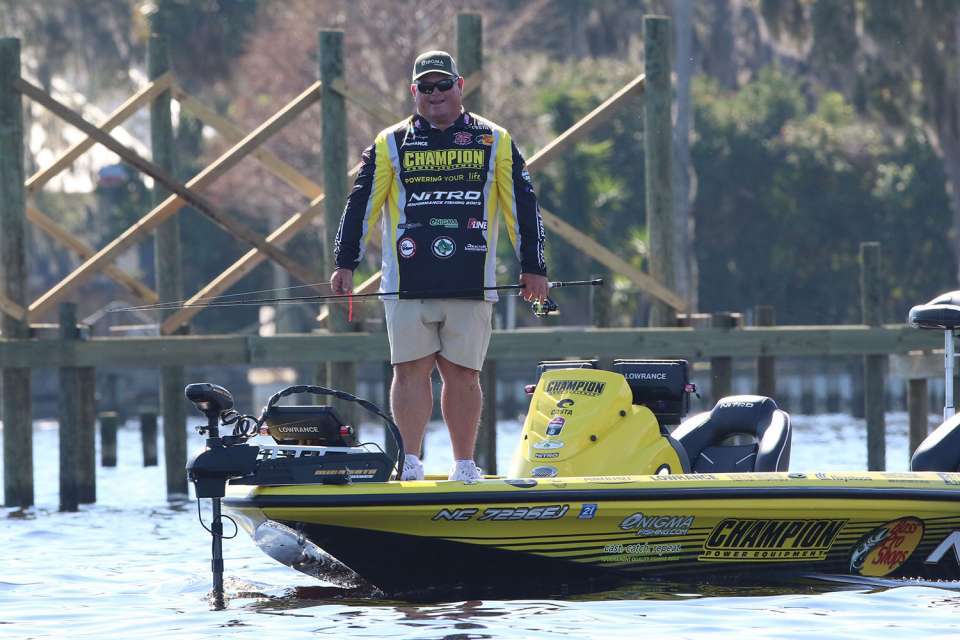
I think Fork is a wildcard in my season⦠There will be a lot of fish out deep when we get there, and Iâm sure it will be won out deep. Thatâs OK. If I can stay on the banks and fish to my strengths maybe I can finish in the top 20. And Iâd be good with that. There again, when itâs your turn to win, it will present itself. My thing is making the (2020 Bassmaster) Classic. If I can go to Fork and finish 20th, thatâs way better than finishing 70th. Itâs important to keep thinking marathon, not sprint.
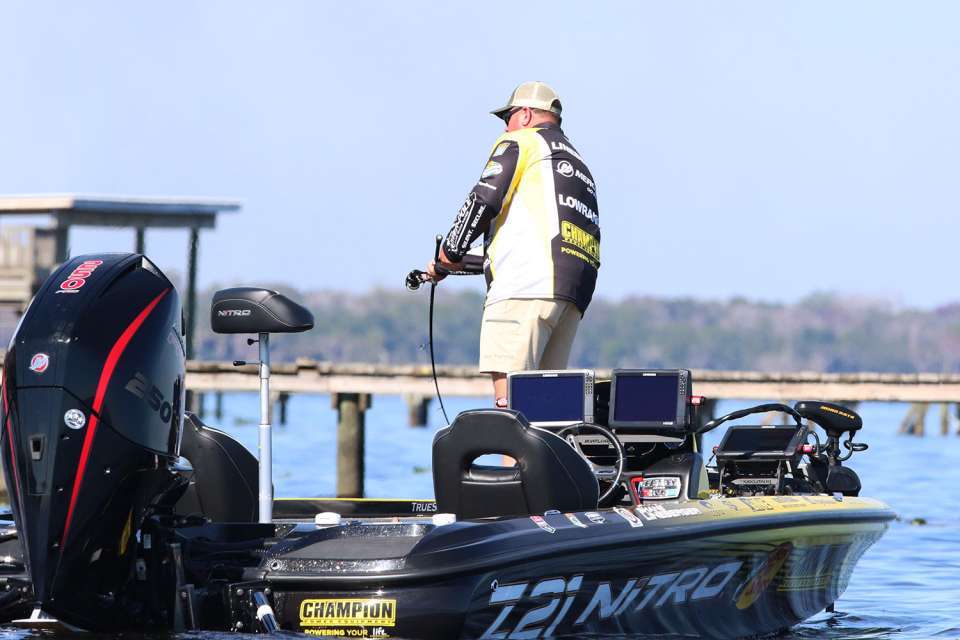
Absolutely. I had a good year in 2017. Out of nine tournaments, I made the money in six of them. I made the 50 cut in five of them, but I missed the Classic by like 20 points and missed requalifying for the Elite Series by like five points. It was ridiculous (how close I was). But I was dead last at Sam Rayburn and next to last at the St. Lawrence River. If I finish 90th in either of those tournaments, I make the Classic and weâre not having this conversation. Itâs a totally different game⦠Looking back, those are two tournaments I could have done well in if I had fished to my strengths. But I let (dock talk) get in my head⦠This year, I told myself if I go down, Iâm going down doing something I like to do. Iâm not going down doing something stupid.
